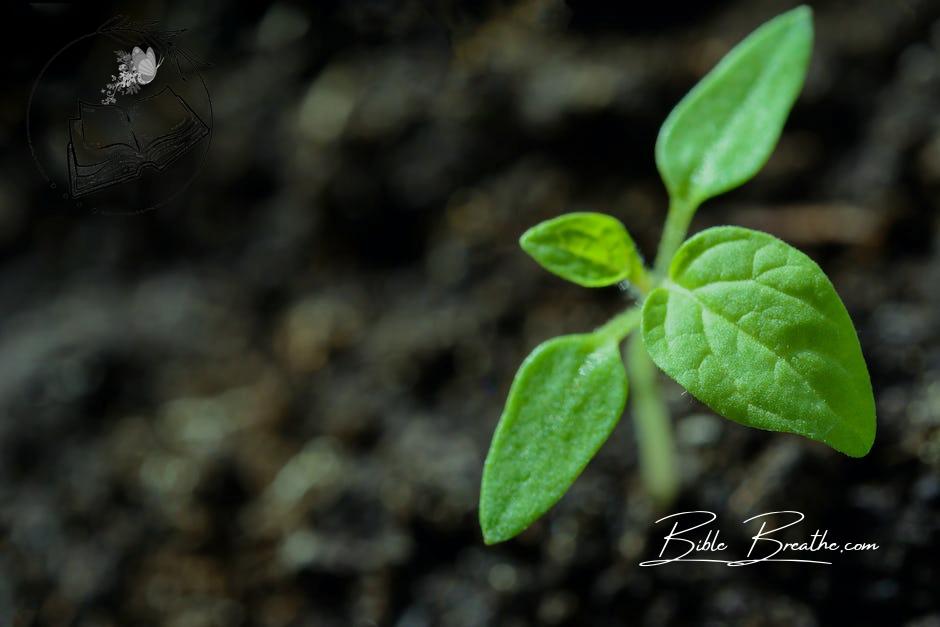Calamus in the Bible – it’s like discovering the secret ingredient in grandma’s famous pie.
Picture yourself in the vibrant biblical era, where every herb and plant had a divine purpose.
Now, here’s the star of the show – Calamus, also known as sweet flag.
This ain’t just any herb; it’s biblical bling!
It pops up in rituals, anointing oils, and even poetic verses, like the Song of Solomon.
But hold up, what’s Calamus all about?
It’s like the spice that makes your favorite dish unforgettable.
Acorus calamus, its scientific name, brought an irresistible aroma to ancient ceremonies.
As we dive into the world of Calamus, we’re talking about its role in the Bible, the Hebrew lingo that unlocks its deeper meanings, and how it jazzed up biblical rituals and offerings.
It’s like incense, taking your prayers to a higher level.
Join me on this aromatic adventure. 🌿
Key Takeaways
- Understanding the context of biblical references to Calamus is essential to grasp its significance. Calamus, also known as “sweet cane,” appears in the Bible as an aromatic plant used in perfumes and anointing oils.
- It’s crucial to differentiate Calamus from other plants like marijuana. While some historical translations mentioned “sweet cane” as Calamus, modern scholars believe it’s more likely a reference to an aromatic reed or cane, not a psychoactive substance.
- In biblical times, Calamus held cultural and ritualistic significance. It was used in religious ceremonies, symbolizing the sweetness of worship and spiritual devotion.
- Recognizing the symbolic value of Calamus in the Bible enhances our understanding of the spiritual and cultural aspects of the texts, shedding light on the practices and beliefs of the ancient world.
- When exploring biblical references to Calamus, it’s important to consider the broader context, recognizing that these mentions are part of a rich tapestry of symbolism, history, and spirituality within the scriptures.
Unveiling the Mystery of Calamus in the Bible

Photo modified by BibleBreathe.com. Original photo by PhotoMIX Company on Pexels
Calamus, the aromatic herb, makes intriguing appearances in various parts of the Bible, each with its unique significance.
Let’s dive into its biblical context and explore where it pops up.
Exodus 30:23 – Anointing Oil’s Secret Ingredient
In Exodus 30:23, we encounter Calamus as a vital component of the anointing oil used for consecrating priests.
It’s like the secret ingredient in a recipe that adds a special flavor to the dish.
Just as a chef carefully selects the best spices for a gourmet meal, God instructed the Israelites to include Calamus in the holy anointing oil to set apart the priests for their divine service.
“Take thou also unto thee principal spices, of pure myrrh five hundred shekels, and of sweet cinnamon half so much, even two hundred and fifty shekels, and of Calamus two hundred and fifty shekels.” – Exodus 30:23 (KJV)
Song of Solomon 4:12–14 – A Fragrant Tribute
In the Song of Solomon, Calamus is mentioned while praising the charms of the bride.
It’s like composing a love song where every word is carefully chosen to convey admiration and beauty.
In this context, Calamus is used to symbolize the delightful fragrance and sweetness of the bride’s character.
“A garden enclosed is my sister, my spouse; a spring shut up, a fountain sealed. Thy plants are an orchard of pomegranates, with pleasant fruits; Camphire, with spikenard, Spikenard and saffron; Calamus and cinnamon, with all trees of frankincense; myrrh and aloes, with all the chief spices.” – Song of Solomon 4:12–14 (KJV)
Isaiah 43:24 – God’s Unpleasant Complaint
Isaiah 43:24 takes an unexpected turn.
Here, God is not expressing delight but rather making a complaint involving Calamus.
It’s like when a trusted friend lets you down, and you express your disappointment.
In this passage, God is disappointed with Israel’s unfaithfulness, comparing their worship to a burden with offerings that include Calamus but lack sincerity.
“Thou hast bought me no sweet cane with money, neither hast thou filled me with the fat of thy sacrifices: but thou hast made me to serve with thy sins, thou hast wearied me with thine iniquities.” – Isaiah 43:24 (KJV)
Jeremiah 6:20 – Calamus in Offerings
Jeremiah 6:20 brings us to the context of offerings.
It’s like attending a grand ceremony where you present gifts to honor someone special.
In this passage, Calamus is mentioned concerning the offerings made by the people.
It emphasizes the importance of sincere offerings and the significance of every element, even the fragrant Calamus.
“To what purpose cometh there to me incense from Sheba, and the sweet cane from a far country? your burnt offerings are not acceptable, nor your sacrifices sweet unto me.” – Jeremiah 6:20 (KJV)
Ezekiel 27:18–19 – Tyre’s Aromatic Export
In Ezekiel 27:18–19, Calamus is associated with the city of Tyre and its production and export.
It’s like discovering a region known for producing fine wines or exquisite chocolates.
Calamus was one of Tyre’s valuable exports, showcasing its importance in trade and commerce during biblical times.
“Damascus was thy merchant in the multitude of the wares of thy making, for the multitude of all riches; in the wine of Helbon, and white wool. Dan also and Javan going to and fro occupied in thy fairs: bright iron, cassia, and Calamus, were in thy market.” – Ezekiel 27:18–19 (KJV)
Calamus, this aromatic herb, weaves its way through different contexts in the Bible, symbolizing various aspects of faith, worship, and trade.
Whether it’s an essential ingredient in anointing oil or a symbol of a bride’s charm, Calamus adds a fragrant layer to the tapestry of biblical stories.
Unraveling the Mystery of Calamus in the Bible

Photo modified by BibleBreathe.com. Original photo by Markus Winkler on Pexels
Hey there!
We’re about to dig deep into something that’s sparked a lot of curiosity – Calamus in the Bible.
Now, this term might have left you scratching your head, wondering what it’s all about.
Well, you’re in the right place because today, we’re gonna peel back the layers and discover the truth about Calamus.
The Hebrew Translation: Cane or Reed
Now, when you’re flipping through your Bible, you might stumble upon the word Calamus, and you might think, “What on earth is that?”
But guess what?
It’s not as complex as it sounds.
In Hebrew, the word we’re talking about means something pretty simple – “cane” or “reed.”
Think of those tall, slender plants swaying gently by a peaceful stream.
That’s the image this word paints.
But here’s the twist – how did we get from a simple cane or reed to this mysterious Calamus?
The Unlikely Equivalence to Marijuana
Now, here’s where it gets a bit spicy.
Some folks have suggested that Calamus in the Bible might be related to marijuana.
It’s like trying to fit a square peg into a round hole, isn’t it?
But let me clear the air here – there’s no solid evidence to back this up.
So, when you hear such claims, take ’em with a grain of salt.
The Bible often mentions various plants and herbs used for different purposes, so don’t let your imagination run wild.
The Aromatic Nature of Calamus
Calamus, my friends, is known for its delightful fragrance.
This is a game-changer because it sets it apart from marijuana.
In the Bible, fragrant stuff was a big deal, especially when it came to anointing oils and incense used in rituals and offerings.
That aroma symbolizes the sacredness of Calamus and its role in the biblical ceremonies.
It’s like when you catch a whiff of your favorite meal cooking – it’s that special.
So, the next time you bump into “Calamus” in the Bible, remember, it’s more about the symbolism and ancient rituals than anything else.
It’s a testament to how deep and rich the scriptures are, where every word holds a world of meaning.
“I will be as the dew unto Israel: he shall grow as the lily, and cast forth his roots as Lebanon.” – Hosea 14:5 (KJV)
Keep seeking, family, and let the Bible speak to your heart.
Unraveling the Biblical Mystery: What’s the Deal with Calamus?

Photo modified by BibleBreathe.com. Original photo by Element5 Digital on Pexels
We’re about to embark on an exciting journey to uncover the hidden gems of the Bible.
Today, our spotlight is on a peculiar word – “Calamus.”
Sounds like a secret code, doesn’t it?
Well, let’s crack that code together and explore its significance.
The Mystery of Calamus
So, first things first, what’s the deal with Calamus in the Bible?
It’s a bit like a riddle wrapped in a mystery, and the answer isn’t as simple as you might think.
Calamus is linked to a plant known as “sweet flag,” or scientifically, Acorus calamus.
Now, that’s where it gets intriguing because this isn’t just any old plant; it’s got a deep history within the scriptures and ancient rituals.
It’s like a hidden treasure map waiting for us to decipher.
The Sweet Connection
As we venture deeper into the Bible’s rich tapestry, we discover that Calamus is best buddies with sweet flag.
Now, why does this friendship matter?
What’s the connection?
These are the kind of questions that make our spiritual journey exciting.
To understand what’s cooking, we need to explore a bit further.
Let’s talk about biblical herbs, anointing oils, and aromatic plants.
The Song of Solomon, for instance, is a poetic masterpiece that’s filled with references that’ll make your senses tingle.
“I have come into my garden, my sister, my bride; I have gathered my myrrh with my spice. I have eaten my honeycomb with my honey; I have drunk my wine with my milk.” – Song of Solomon 5:1 (KJV)
Within these verses, we catch a glimpse of the alluring fragrances, incense, and the aromatic vibes that were a big deal in ancient biblical rituals.
Sweet flag, or Calamus, is just one piece of the bigger puzzle.
Unlocking the Secrets
Our adventure doesn’t stop there.
We’re diving into the world of ancient plants and biblical translations.
Calamus played a significant role in the making of anointing oils and incense.
These weren’t just everyday fragrances; they had a spiritual punch to them.
What do these ancient rituals teach us about our divine connection?
How can we apply these ancient insights to our modern lives?
These are the kind of questions that make us think deep.
So, as we journey through time, connecting the dots between fragrant plants, biblical offerings, and the spiritual traditions of yesteryears, it’s kind of like following a treasure map to the heart of ancient wisdom.
Let’s pause for a moment, take a deep breath, and soak in the wisdom of the past.
It’s like exploring a hidden garden filled with secrets.
Calamus, the sweet flag, is more than just a word in the Bible.
It’s a key that unlocks a world of sacred fragrances and rituals.
Frequently Asked Questions (FAQs) About What Is Calamus In The Bible
What is the significance of Calamus in biblical rituals?
Calamus is mentioned in the Bible as an ingredient in anointing oil, and it may have held symbolic or aromatic significance in ancient rituals.
Is there a connection between Calamus and marijuana in the Bible?
The identity of ‘calamus’ in the Bible is debated.
While some translations interpret it as a sweet cane, others suggest it might be related to aromatic substances.
There’s no direct connection to marijuana in biblical texts.
How is Calamus described in different translations of the Bible?
Calamus is interpreted differently in various Bible translations.
In some versions, it’s referred to as ‘aromatic cane,’ while others mention ‘sweet cane.’
These interpretations reflect the challenge of translating ancient plant names.
Calamus likely referred to a fragrant or aromatic plant utilized in anointing oils or incense.

